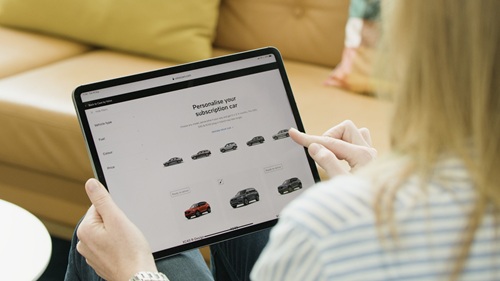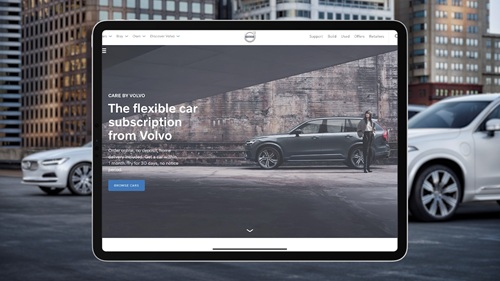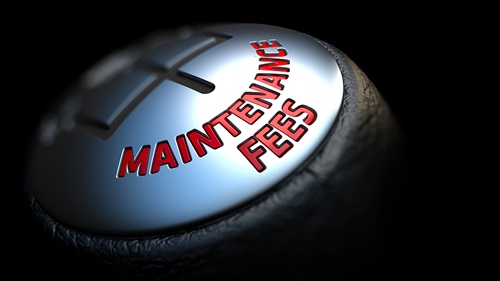Car subscription services were promised to us more than a decade ago, but for the most part they’re a promise that never really came true. That could all be about to change, and it could be the rise of the electric car that triggers that change.
In many ways, the idea of a car subscription makes a huge amount of sense. You pay a single monthly fee and that covers (almost ) every cost associated with motoring — the car itself, servicing, tyres, insurance, tax etc. The only thing you need to pay for is fuel. Rather like with a mobile phone contract, upgrades are built into the system, so you know that in a year or two or three’s time, you can chuck in your current wheels and get something shiny and new. For many, it might make much more sense than car leasing or car buying.
Benefits and downsides

The benefits are obvious — no more worries about haggling for a price nor organising finance; you just pay your monthly fee and off you jolly well drive. There’s no need to worry about depreciation and some subscription services even have temporary car changes built in — so you can, in theory, drive a small, economical car most of the time but grab a bigger, roomier, comfier car for the occasional long journey or for your annual holiday.
Are there any downsides? Well, the primary one — and it seems to be a big one where Irish car buyers are concerned — is that you never actually own anything. You’re essentially turning your car ownership into a service provision, and paying for it as a service, not buying an asset.
In some ways, that works better — after all, depreciation is the single biggest cost in motoring, and while your monthly fee certainly covers that cost, at least you don’t have to worry about the resale value of your car, because to you that resale value now doesn’t exist.

However, so far car subscription services have had a sluggish start. Way back in 2017, Volvo offered the first subscription service in Ireland, with a €699 monthly fee getting you a then-new XC40 SUV for two years, after which you could either hand the car back, or subscribe again to a new one.
However, the offer didn’t last very long, and it perished on something which scuppers many Irish motoring plans — the cost of insurance. Equally, Irish buyers have traditionally preferred to be just that — buyers, and owners, rather than renters, and preferred to consider the more usual pros and cons of car leasing versus car buying.
That may be changing, however. Not that the cost of car insurance in Ireland is — ever — likely to come down much, but corporate insurance policies are becoming easier to source and better value, and with the rise of the electric car, the potential desirability of a subscription has increased. Why?
Move to electric
Simply because the pace of change in electric car technology has been so rapid. Think back to when Nissan launched the first Leaf back in 2012. That was a car with a 160km range, and it would often struggle to meet that low figure. Now, a new EV, even a cheap one, will generally take you for at least 300km on a charge, possibly more while cars with double that range are increasingly common. With more big jumps in battery tech in the offing, subscribing to an EV, rather than buying one, makes sense as you’re putting the risk of potential obsolescence onto the car maker, rather than yourself. If battery technology leaves your current car behind, simply upgrade in a year or so — just like you do with your phone.

Even leaving the potential march of technology to one side, Dublin-based DCEV — which provides subscription-based electric car services to its customers — reckons that subscribing is just simpler. DCEV’s Paul Clifford told us that: “Buying an EV right now is very complicated. It’s not just battery size, it’s is the car two-wheel drive or four-wheel drive? What kind of technology does it have? Even smaller questions like does it have heated seats? We wanted to compress that complication and make it easier for people, and it’s almost a try before you buy service in some way. It’s also good for company operators, for instance if they have a new employee on a six month probation, they can subscribe to a car for that employee for the six months, rather than buying something on a three year finance package. So we do everything digitally, we keep the paperwork to a minimum, and it’s about putting people and companies in the position where they’re not afraid to make a mistake, they’re not worried that they’re getting into something for three years that might not be right for them. We've seen the subscription economy boom across various sectors, and there's no reason why car usage should be any different. Our service embodies convenience and commitment – to our customers and to the planet,” he said. “Our subscription service is just the beginning. We’re laying down the infrastructure for a cleaner, greener, and more efficient tomorrow.”
It’s a view being increasingly shared across Europe. According to a recent survey by industry analysts McKinsey & Company, as many as one third of European consumers are considering a car subscription for their next set of wheels. David Bailey, professor in business economics at Birmingham Business School, said recently: “Car subscription services have taken off in Europe, especially with younger drivers. They give drivers more flexibility and choice. The cost of full ownership can be prohibitive for younger buyers in big European cities especially once insurance is factored in. Here car subscription offers the use of your ‘own’ car without all the hassle of full ownership. It is part of the 'mobility as a service' movement which is taking off.”
Will Irish buyers be moved?
Possibly so. We do tend to be rather more traditional than our UK and European cousins when it comes to car ownership, but generally speaking motoring trends which start on the continent eventually make their way here. Irish car buyers may well prove to be more subscription-averse in the short to medium term, but further out, it looks as if a great many of us will be subscribers in the end.